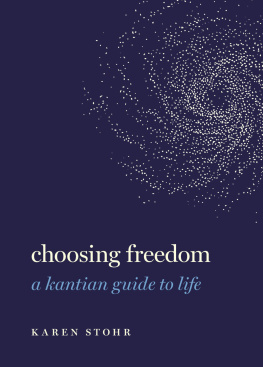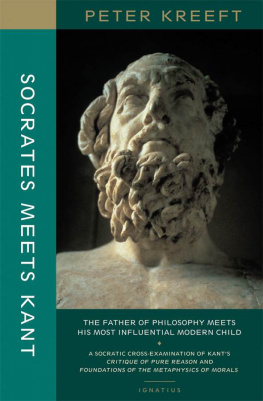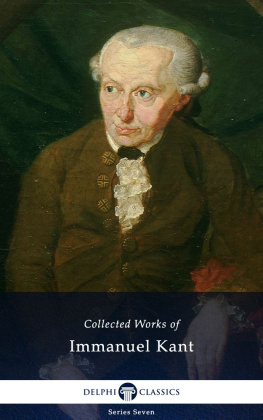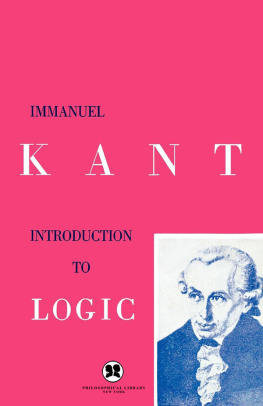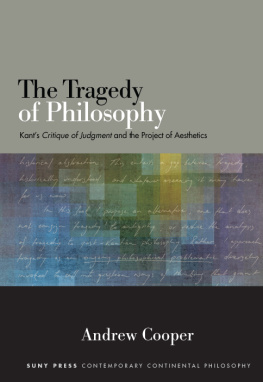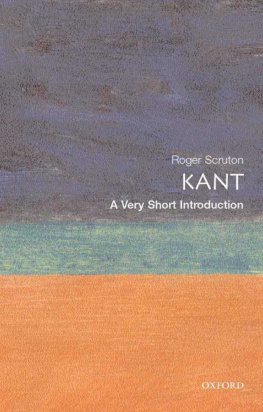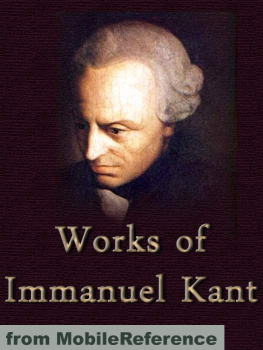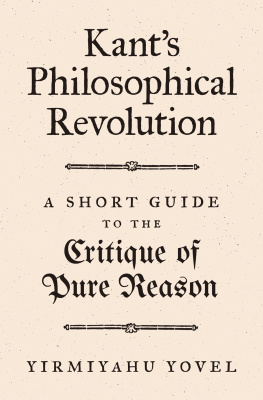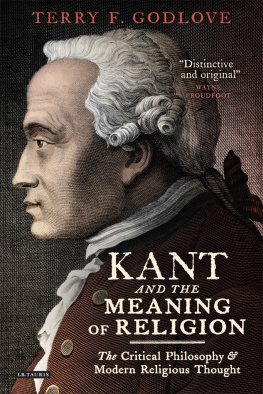CHOOSING FREEDOM
GUIDES TO THE GOOD LIFE
Stephen Grimm, series editor
Seeing Clearly: A Buddhist Guide to Life
Nicolas Bommarito
On Being and Becoming: An Existentialist Approach to Life
Jennifer Anna Gosetti-Ferencei
Choosing Freedom: A Kantian Guide to Life
Karen Stohr

Oxford University Press is a department of the University of Oxford. It furthers the Universitys objective of excellence in research, scholarship, and education by publishing worldwide. Oxford is a registered trade mark of Oxford University Press in the UK and certain other countries.
Published in the United States of America by Oxford University Press
198 Madison Avenue, New York, NY 10016, United States of America.
Oxford University Press 2022
All rights reserved. No part of this publication may be reproduced, stored in a retrieval system, or transmitted, in any form or by any means, without the prior permission in writing of Oxford University Press, or as expressly permitted by law, by license, or under terms agreed with the appropriate reproduction rights organization. Inquiries concerning reproduction outside the scope of the above should be sent to the Rights Department, Oxford University Press, at the address above.
You must not circulate this work in any other form and you must impose this same condition on any acquirer.
CIP data is on file at the Library of Congress
ISBN 9780197537817
eISBN 9780197537831
DOI: 10.1093/oso/9780197537817.001.0001
For Julia and Kate, who make me laugh and give me hope for the future
Table of Contents
Several ancient philosophers held that the point of studying ethics was not just to learn about ethicsas one might learn about chemistry, astronomy, or historybut to become a better human being. They also recognized that this was not easy to do. In order for thinking about ethics to make a difference in our lives, our habits and inclinations needed to be educated right alongside our minds. They therefore claimed that what mattered to living well was not just what we thought but how we thought, and not just how we thought but how we emotionally responded to the world and to other people.
The books in this series highlight some of the transformative ideas that philosophers have had about these topicsabout the good life, and the practices and ways of life that help us to pursue it. They tell us what various philosophers and traditions have taken to be most important in life, and what they have taken to be less important. They offer philosophical guidance about how to approach broad questions, such as how to structure our days, how to train our attention, and how to die with dignity. They also offer guidance about how to deal with the sort of everyday questions that are often neglected by scholars, but that make up the texture of our lives, such as how to deal with relationships gone wrong, family disruptions, unexpected success, persistent anxiety, and an environment at risk.
Because the books are written by philosophers, they draw attention to the reasons and arguments that underlie these various claimsthe particular visions of the world and of human nature that are at the root of these stances. The claims made in these books can therefore be contested, argued with, and found to be more or less plausible. While some answers will clearly compete with one another, other views will likely appear complementary. Thus a Confucian might well find that a particular practice or insight of, say, Nietzsches helps to shed light on his or her way of living in the world, and vice versa. On the whole, the idea is that these great philosophers and traditions all have something to teach us about how to be more fully human, and more fully happy.
Above all, the series is dedicated to the idea that philosophy can be more than just an academic disciplinethat it can be, as it was for hundreds of years in the ancient world, a way of life. The hope is also that philosophy can enhance the ways of life we already feel pulled toward, and help us to engage with them more authentically and fully.
Stephen R. Grimm
Professor of Philosophy
Fordham University
Presumably you picked up this book because something sparked your interest in Immanuel Kant. Perhaps you studied him in a philosophy class years ago. Perhaps youre in college studying him now. Or perhaps youre a fan of The Good Place and are wondering why Chidi gets so excited whenever he talks about Kant. Or maybe youve only vaguely heard of Kant, but youre interested in what he said about how to live well. You may know that he is a philosophical giant of Western history. If youve ever encountered Kants work, you will be aware that he wrote extremely complicated books about highly abstract topics. In any case, you may be at least a little bit skeptical about whether Kant has anything to teach you about how to live your life.
My aim in this book is to show you that Kants ethical outlook is as relevant and useful as it was in the eighteenth century. Maybe even more so. Kants arguments for the value of living in accordance with rational principles have appealed to many people over the past several hundred years. To others, however, Kants theory has seemed overly abstract and perhaps even cold in its emphasis on rationality rather than emotion. This concern is understandable. Its also based on a mischaracterization of Kant, one that has been sadly common even among philosophers. In this book, I will be seeking to remedy that mischaracterization and introduce you to a different Kant, one you may not have met before.
Kant was a systematic philosopher, arguably the greatest systematic philosopher in Western philosophical history. By calling him a systematic philosopher I mean that he aimed at developing a comprehensive, coherent system of philosophical thought, one that would link together ideas about reality, knowledge, religion, art, politics, and of course, ethics. Whether or not Kant succeeded in this project is a matter of considerable debate, but even his most fervent critics acknowledge that Kants attempts at systematic philosophy are the work of a genius.
This image of Kant as a genius, toiling quietly but brilliantly away in his little house in Konigsberg, is not wrong. But it also fails to reflect the full picture of the man, both as a philosopher and as a human being. You probably know the expression, You cant see the forest for the trees. Usually when someone says this, they mean that we should stop focusing on the trees because that will prevent us from seeing the (more important) forest. At the same time, however, focusing entirely on the forest can mean that we miss out on some really interesting trees. The forests of Kants thought are so impressive and so challenging to work through that one could spend a lifetime just trying to make them out. But we should also attend to the trees that make up that Kantian forest, particularly when it comes to his ethics.
The chapters in this book reflect a wide variety of concrete, practical ethical concerns. Kant had something to say about every single one of them. This often surprises people because it can be hard to believe that this philosophical giant would have bothered to write about dinner parties and gossip. But he did. He actually took such matters quite seriously, and what he has to say about them is fascinating. Kants remarks on specific ethical topics, like lying, gratitude, sympathy, and friendship, are worth reading in their own right for the insights they contain. They also shed some light on his larger ethical theory. It turns out that the dense, abstract forest of Kants moral system becomes clearer when we stop to look at some of the individual trees.

